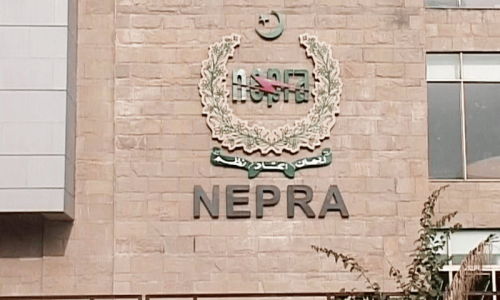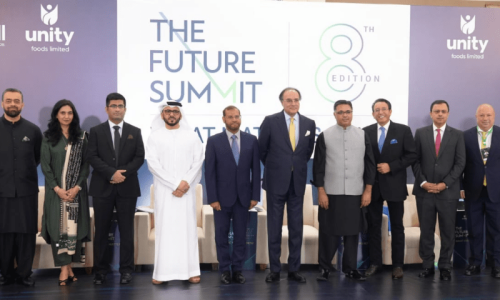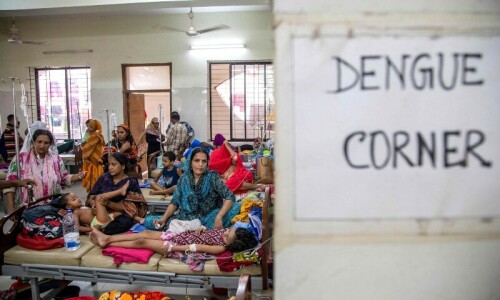 Sindh is the largest producer of oil and gas with 72 per cent of gas and 57 per cent of oil production in the country.
Sindh is the largest producer of oil and gas with 72 per cent of gas and 57 per cent of oil production in the country.
Efforts are being made to explore and exploit more onshore and offshore reserves of oil and gas in the province. Government is also planning a new hydrocarbons policy with more incentives for domestic and foreign investors.
The ministry of petroleum and natural resources has signed a number of joint exploration and production sharing agreements (EPSAs) for offshore oil exploration in the Arabian Sea touching Badin, Karachi and Thatta.
Arabian Sea was declared as Zero Zone which comprised of Indus North, Indus X, Indus Y and Indus Z. Approximately an area of 4,170sq km was given to different multinational companies including British Petroleum (blocks U, V, and W in Indus Delta), ENI (blocks M, N and C), PETRONAS ,with partners like TOTAL 40 per cent, OMV 30 per cent, MGCL 10 per cent and subsidiary PETRONAS Carigali Pak Ltd, Tullow and OGDCL (blocks G and H.). It was claimed that an investment of $3.19 million is envisaged during the first two years of the project, but no official estimates of the blocks’ reserves have been released.
The government and the companies have legal obligation and a moral responsibility to protect the environment, eco-system and biodiversity of the region. The protection of livelihood resources and socio-economic wellbeing of the local communities is an “internationally accepted” binding that they are supposed to look into.
According to the World Bank’s document, “Environmental, Health, and Safety Guidelines,” from the land ownership issue to heritage and cultural sites, the offshore companies are bound to protect and preserve a large number of social, economic, environmental and cultural sectors.
The mismanagement of marine resources and lack of enforcement of environmental laws, have made the environment and local peoples’ livelihood unsustainable. Coastal and marine resource degradation is increasing. Coastal areas have a population of 1.2 million. Around 33 per cent of the country’s population lives below the poverty line and tragically, 80 per cent of this ratio resides in that area. Due to shortage of fresh water flows, fish stocks are declining, and commercially important marine species are fast disappearing. Water, air, and land are being contaminated.
In the Human Development Index of 2007, Badin which produces almost 40 per cent of the total oil and gas reserves of the province stands among the country’s poorest districts. Because of shortage of river water in downstream delta areas, sea intrusion has destroyed 1.6 million acres of fertile and agriculture land. The fishing sector is under tremendous pressure.
The fisher communities are both hopeful and suspicious of the offshore oil development. They hope for new job opportunities and socio-economic wellbeing but fear the destruction of their environment, fishing grounds and the disappearance of their culture and livelihoods. The offshore oil and gas exploration pose a threat to the marine resources of the region, to the coastal waters, the bays, wetlands, reindeer pastures and salmon spawning grounds that make up the delicate human and natural ecosystem of the coastal region of Sindh. An oil slick will be catastrophic, both for the natural environment and the humans who depend on it.
There are legal bindings for the protection of environment and livelihood of the people living in the coastal areas of Sindh but in the Petroleum Concession Agreement (PCA) and Exploration and Production Sharing Agreements (EPSA), there is scant regard for it.. Schedule of Marine Research Fees on the Offshore Oil and Gas Exploration and Production says very little about the protection of the said resources, human livelihood and areas.
The onshore experience offers the worst example of hostile relationship between local communities and companies and the government, in Badin, Dadu, Hyderabad, Khairpur, Ghotki and other districts of Sindh.
In the case of offshore exploration, the protection of environment, eco systems and socio-economic wellbeing of the indigenous poor people of the coastal areas needs to be given priority. The people of Sindh should be the main beneficiaries of the of natural resources of the province.














































Dear visitor, the comments section is undergoing an overhaul and will return soon.